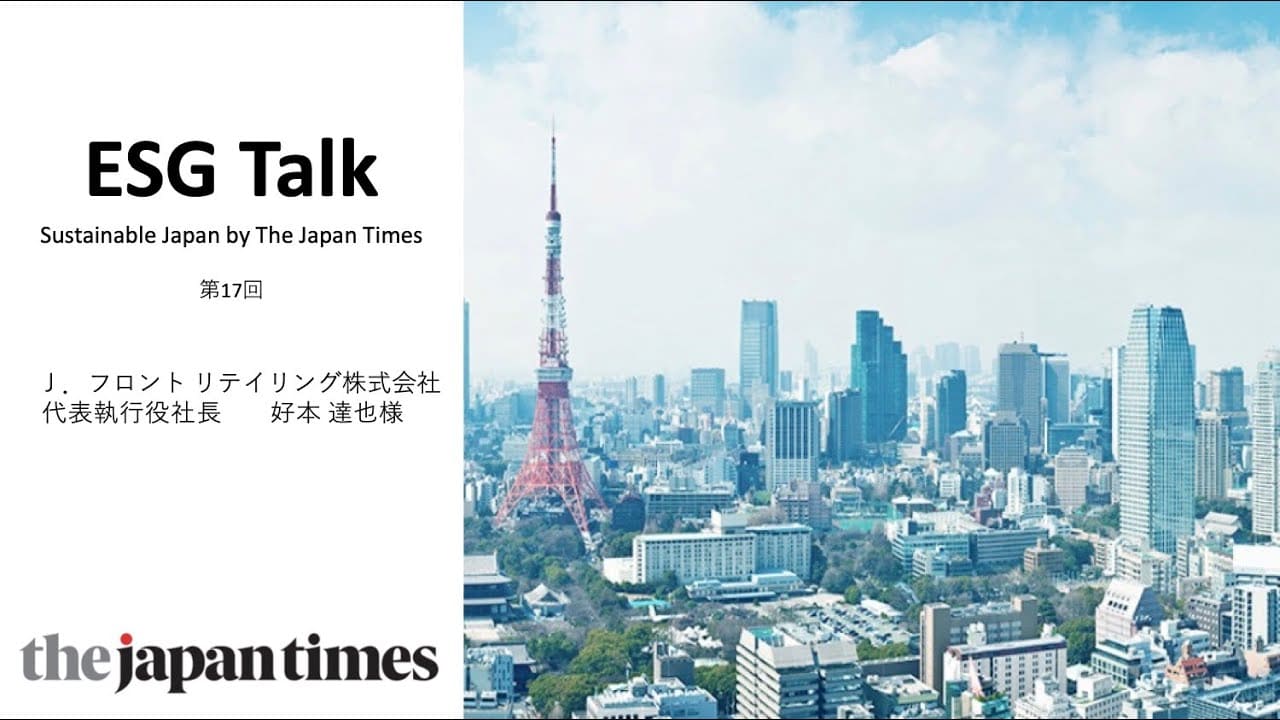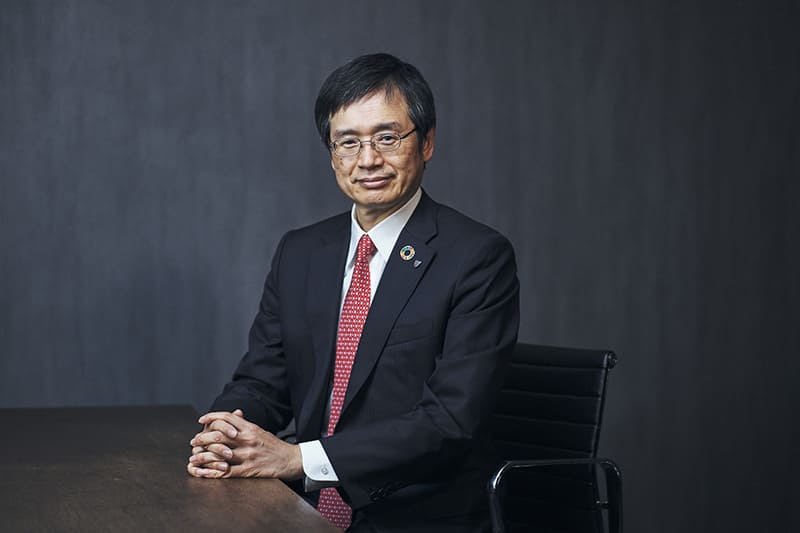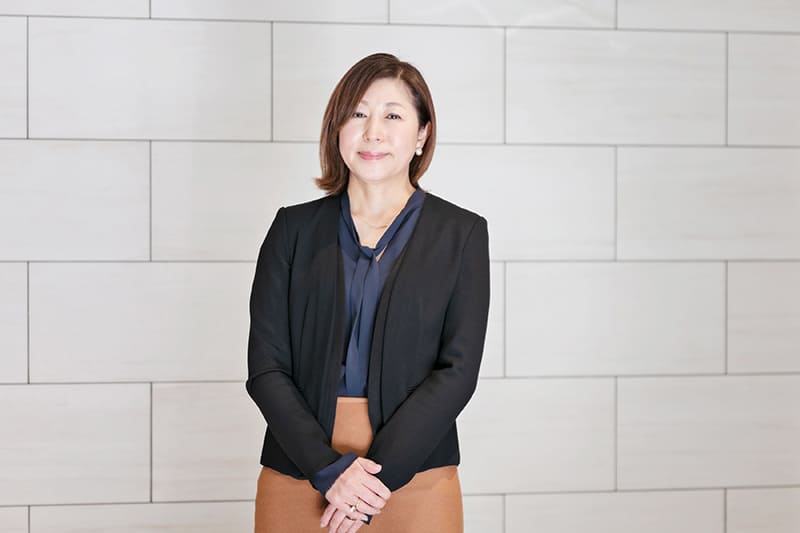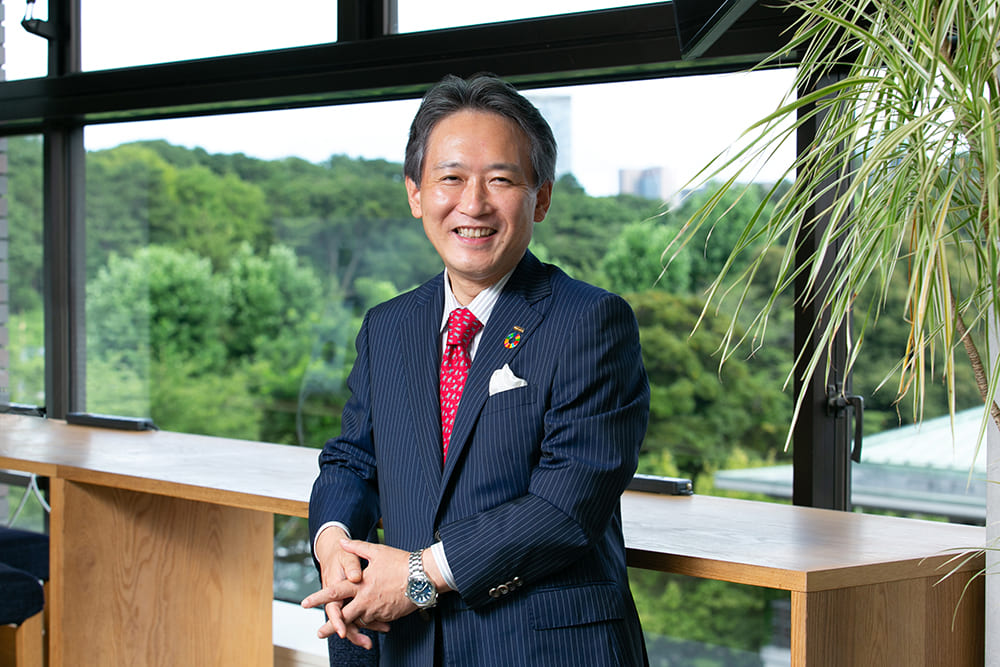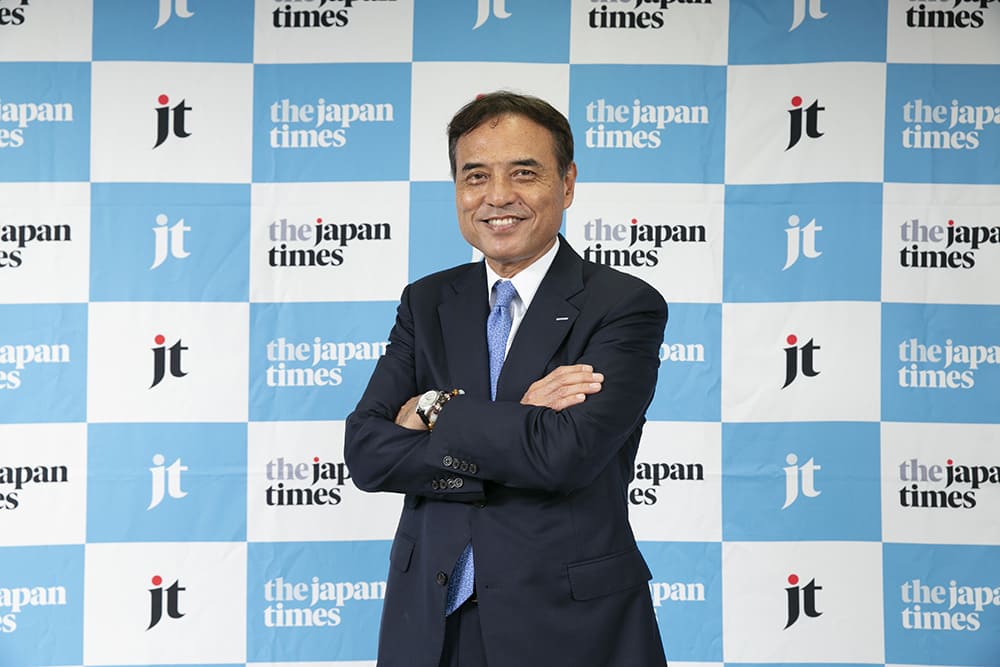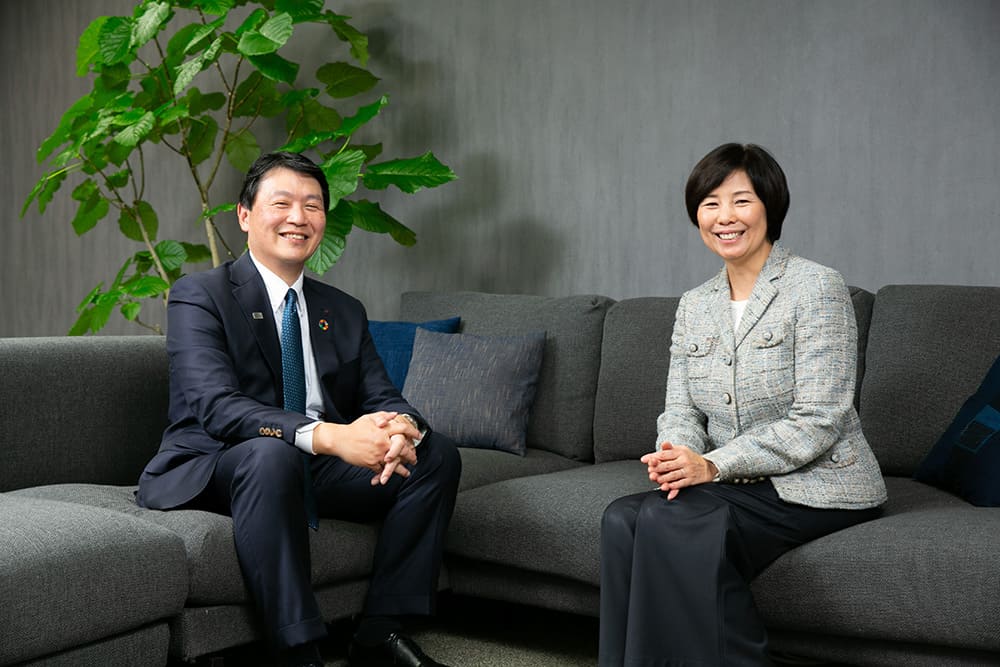July 08, 2022
J. Front Retailing seeks both social and economic value

J. Front Retailing Co. launched a medium-term business plan in fiscal 2021, through February 2022, aiming to revive its business from the impact of the COVID-19 pandemic and returning itself to a growth track. In the first year of the plan, the company maintained a defensive mode, with priorities placed on restricted investment and acceleration of operational structural reforms. In a significant departure, it pledged to shift up a gear to adopt an offensive stance in this fiscal year, the second year of the plan. With “sustainability management” which seeks to both resolve social issues and achieve corporate growth at its foundation, the company actively work on CSV, or creating shared value, initiatives, aiming to realize “well-being life,” or life rich in both mental and physical spheres, for all stakeholders.
J. Front Retailing was born out of management integration between Daimaru and Matsuzakaya Holdings Co., both leading department store operators in Japan, in 2007. The company now operates a total 15 Daimaru and Matsuzakaya department stores and 18 stores of Parco Co., which it made a wholly owned subsidiary in 2020. It also has nonretail operations, including general trading, housing coating and decorating, developer and financial settlement businesses.
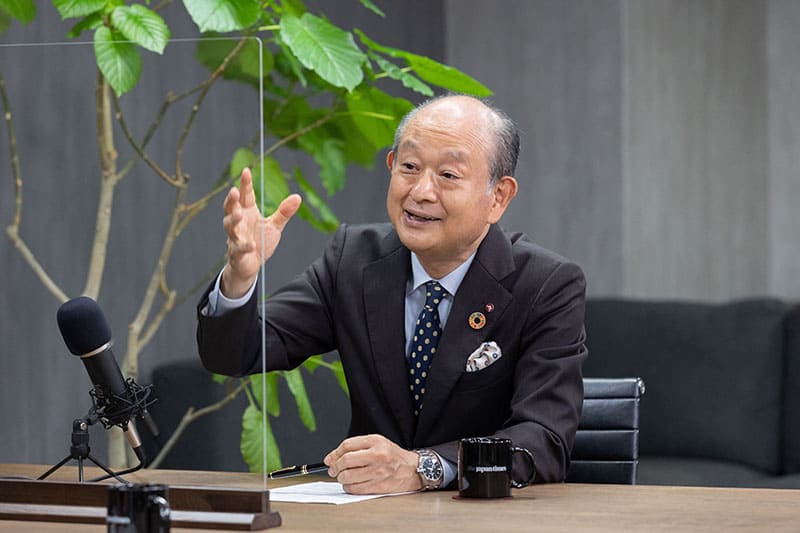
The history of Daimaru and Matsuzakaya goes back about three and four centuries respectively. J. Front Retailing has gone through a number of testing events, including the collapse of a bubble economy, a major earthquake and tsunami disaster and the COVID-19 pandemic, over the past few decades. Tatsuya Yoshimoto, president and representative executive officer of the company, has confidence in the company because it “has consistently maintained the customer-first policy (as stated in the company’s corporate credo) and worked to contribute to local communities, while always being aware of the cutting edge of the current era,” he said. Reliability supported by a successful track record and relationship of trust built over many years with consumer and business partners are the unwavering strengths of the group.
In 2018, J. Front Retailing set up an ESG (environment, social and corporate governance) promotion division. One of its aims is to enhance information disclosure on the ESG activities the company has been doing since the time of its foundation, although it did not use the terms ESG or U.N. sustainable development goals in earlier years. The decision to set up the division was in response to an emerging trend for overseas investors, especially those in Europe, to seek to invest in companies that actively engage in ESG activities.
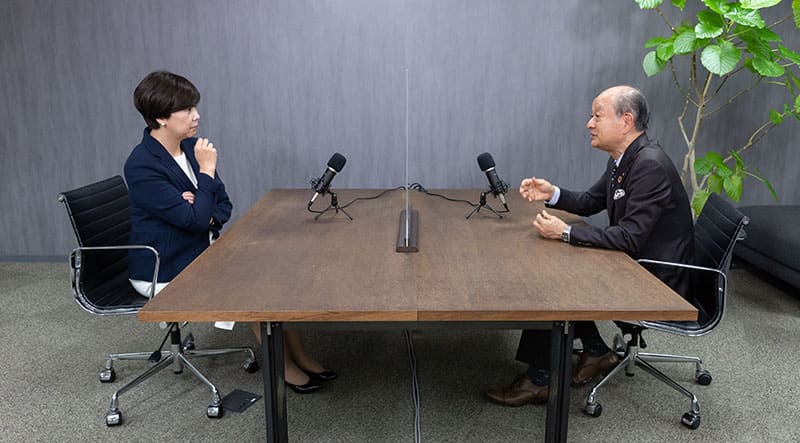
In the area of the environment, J. Front Retailing has stepped up efforts for decarbonization. By 2030, it aims to reduce “scope 1,” or the amount CO2 emissions from the company itself, and “scope 2,” or indirect emissions associated with its use of energy the company purchased from external providers, by 60% from the level in fiscal 2017 and “scope 3,” or the emissions other than scope 1 or 2 from other companies in its supply chain, by 40% from the level in fiscal 2017. In terms of scopes 1 and 2, the company is working to switch energy sources to renewables and lighting to LED-based devices at its stores. J. Front Retailing was early among Japan’s retailers to introduce electric vehicles for company-use vehicles.
As regards scope 3, it organized in this past April a meeting of representatives from about 250 business partners in which it briefed on the J. Front Retailing group’s policy on CO2 reduction, reported on efforts underway at the group, and asked the partners to estimate and reduce their emissions. This was because J. Front Retailing judged that cooperation from the business partners would be necessary if it is to achieve its reduction targets, as scope 3 represents 95% of CO2 emissions from Daimaru Matsuzakaya Department Stores.
The participants at the meeting expressed reservations and concerns mainly about expected cost increases on the work to estimate CO2 emissions and efforts to reduce them. Yoshimoto emphasized the importance of coordinating efforts with business partners, saying, “We plan to share the know-how and information (the group has) accumulated and work out ideas together” with the partners, he said. An initiative to create a framework that involves business partners is not commonly seen in any industry in Japan, but Yoshimoto said it is essential for promoting “efforts that are effective.”
“It’s very important as a way to encourage the business partners to shift their awareness,” he said.
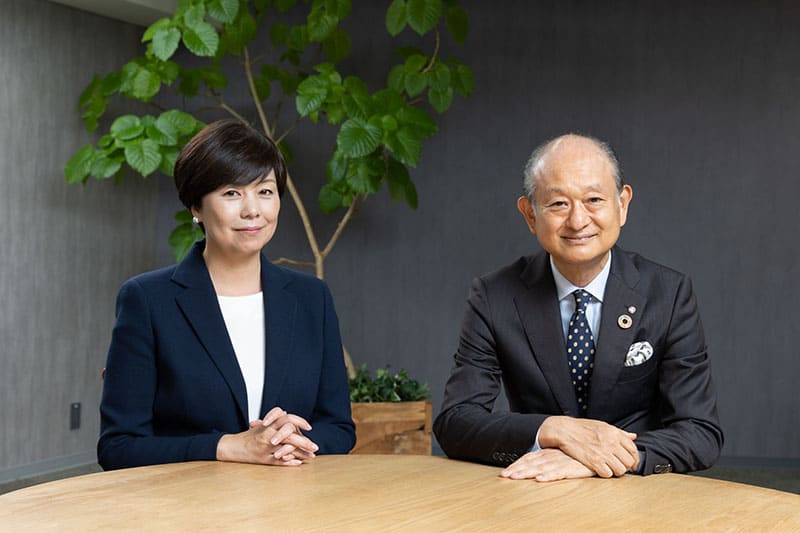
J. Front Retailing also has initiatives to help make the economy circular. Under the belief that “fashion is not disposable,” it launched AnotherADdress, a subscription-style fashion rental service, in March 2021. The service allows subscribers to rent three pieces of clothes per month, selectable from among some 100 brands, on a monthly fee of 11,880 yen. Featuring “high quality brands typical for a department store operator,” the service commands strong popularity.
Investment on human resources is another area Yoshimoto places priority on. AnotherADdress, an unusual service for a department store operator in that it rents products rather than selling them, grew out of a proposal by a young employee in their early 30s. “We invest in efforts to give opportunities for young people to test their potential,” Yoshimoto said.
“We’ll also help experienced workers acquire new skills amid a shift in work style” caused by business conversion and digitalization, he added.
Yoshimoto regards efforts to promote diversity and inclusion and create a work environment in which employees can feel secure even when their lives change due to childbirth and child care are also important missions. The company supports career formation of women, who represent over 50% of all employees, aims to increase the percentage of female managers to 50% by 2030, reduce employees resigning due to child care or nursing care for family members to 0%, and increase the acquisition rate of child care leave to 100%, regardless of gender. The group is working to diversify its operations and increase midcareer hires and hiring of external human resources as a way to acquire expertise it does not possess.
The group revenue dropped 370 billion yen in the first year of the COVID-19 pandemic. This gave Yoshimoto the opportunity to ask fundamental questions of what the reason for its existence is and what it means to be needed in society. He thought about the “importance of bonding” with customers, employees, business partners and society and realized afresh the importance of sustainability management, Yoshimoto said. Although customer visits to the group’s stores have been returning, consumer values and the mode of their behaviors has changed. On the other hand, Yoshimoto strongly believes the group can take advantage of the relationship of trust with consumers and the sales know-how it has established through its physical stores to diversify sales channels and improve customer experience, using digital technology.
Sustainability management does not work if it lacks either social value or economic value. The era of living with the new coronavirus has arrived, and J. Front Retailing’s endeavors for new reforms have just begun.
The group revenue dropped 370 billion yen in the first year of the COVID-19 pandemic. This gave Yoshimoto the opportunity to ask fundamental questions of what the reason for its existence is and what it means to be needed in society. He thought about the “importance of bonding” with customers, employees, business partners and society and realized afresh the importance of sustainability management, Yoshimoto said. Although customer visits to the group’s stores have been returning, consumer values and the mode of their behaviors has changed. On the other hand, Yoshimoto strongly believes the group can take advantage of the relationship of trust with consumers and the sales know-how it has established through its physical stores to diversify sales channels and improve customer experience, using digital technology.
Sustainability management does not work if it lacks either social value or economic value. The era of living with the new coronavirus has arrived, and J. Front Retailing’s endeavors for new reforms have just begun.

